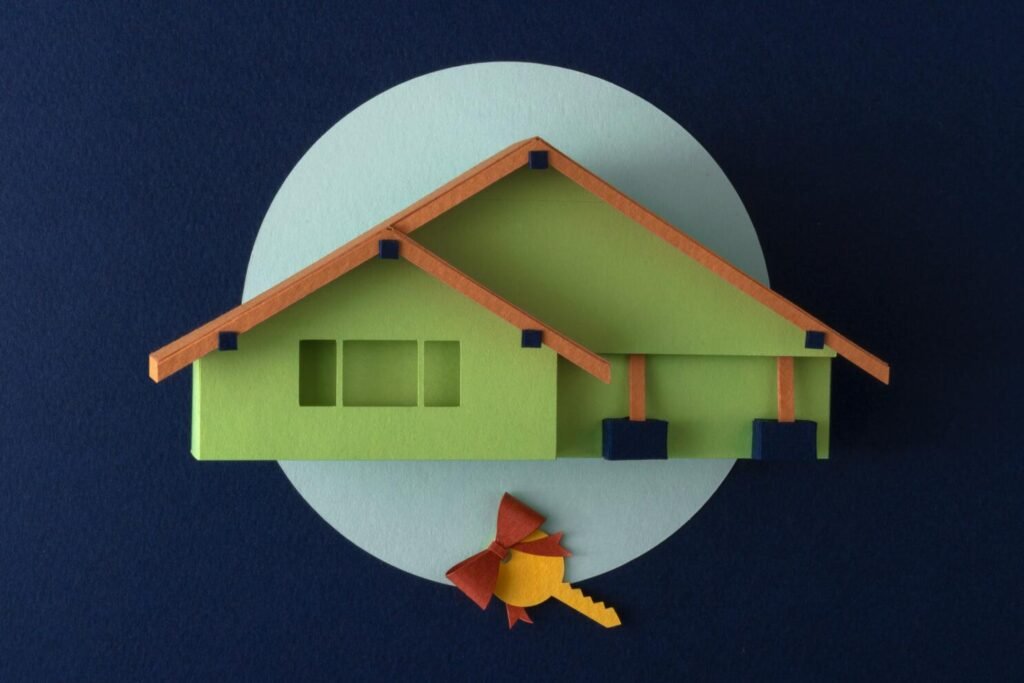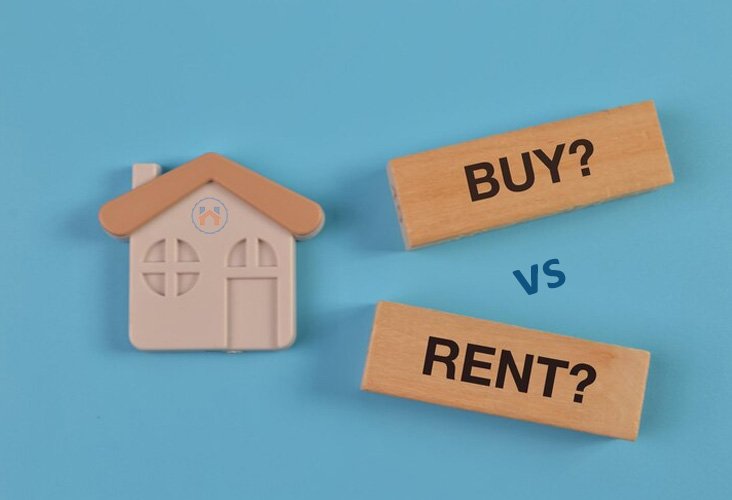
Is it cheaper to rent or buy in 2025? This ongoing debate has never been more relevant, as the housing market undergoes significant shifts. With rising interest rates, fluctuating home prices, and rental markets adjusting to inflation, prospective homeowners and renters alike are questioning the smartest financial move for their future. The answer isn’t one-size-fits-all—it depends on a variety of factors, including location, financial goals, and lifestyle preferences.
As we enter 2025, affordability remains a pressing concern. Mortgage rates have continued to climb, making homeownership more expensive. Meanwhile, rental prices vary dramatically based on city and region, with some areas seeing price stabilization while others experience drastic hikes. Additionally, government policies, such as rent control laws and first-time homebuyer tax incentives, are influencing the decision-making process.
This article provides an in-depth comparison of renting vs. buying in 2025, breaking down financial implications, lifestyle considerations, and long-term benefits. Whether you are contemplating settling down or maintaining flexibility, understanding the pros and cons of each option will help you make an informed decision. Let’s explore whether renting or buying is the more cost-effective choice for you.
1. Understanding the Current Housing Market in 2025

The housing market in 2025 continues to evolve, shaped by economic conditions, interest rate policies, and shifting consumer behavior. Home prices have seen a mix of stabilization and appreciation, with some metropolitan areas experiencing cooling markets, while others remain highly competitive.
Interest rates play a crucial role in home affordability. With the Federal Reserve maintaining higher borrowing costs to curb inflation, mortgage rates have increased compared to previous years. This has led to a slowdown in home purchases, but in some cases, home values are still appreciating, making it a challenging market for buyers.
Meanwhile, the rental market is responding to these changes differently. In many cities, rental demand has surged due to affordability concerns, leading to rising rents. However, some suburban and secondary markets are experiencing price stabilization as more people explore remote work opportunities and lower-cost living options.
2. How Rising Interest Rates Impact Buying a Home
Higher mortgage rates directly affect homebuyers by increasing their monthly mortgage payments. In 2025, buyers are facing interest rates significantly higher than in previous years, making it more expensive to finance a home. Even a slight percentage increase can translate into hundreds of extra dollars per month in payments.
Beyond monthly costs, these higher rates impact the total cost of homeownership over a 30-year loan. A home that was once affordable under lower interest rates may now be out of reach due to the added interest burden. Many buyers are turning to adjustable-rate mortgages (ARMs) as an alternative, but these loans come with risks if rates continue to rise.
Understanding the differences between fixed and variable rates is essential in this market. Fixed-rate mortgages offer stability but at a higher initial cost, while variable rates may seem attractive in the short term but can become unpredictable in the future. Buyers must weigh these options carefully before committing to a home purchase.
3. Renting in 2025: More Affordable or More Expensive?
Renting in 2025 presents a mixed landscape. In some cities, rental prices are increasing due to high demand, while in others, they are stabilizing as landlords adjust to market conditions. Supply and demand continue to dictate rental affordability, with urban centers typically seeing steeper rent hikes than suburban or rural areas.
Inflation also plays a role in rental costs. As the cost of living rises, landlords pass on these expenses to tenants. While some jurisdictions have rent control laws that cap annual increases, many renters still face annual hikes that outpace wage growth. This makes long-term renting more costly than it might initially appear.
Despite these challenges, renting remains attractive for those who value flexibility. Without the burden of maintenance costs, property taxes, or mortgage interest, renters can allocate their savings toward investments, travel, or career mobility. However, the financial trade-offs between renting and buying remain crucial to consider.
4. Hidden Costs of Buying a Home You Shouldn’t Overlook
Homeownership comes with several hidden costs that go beyond the monthly mortgage payment. Property taxes, which vary by location, can add thousands of dollars annually to housing expenses. Homeowners insurance is another necessary expense that protects against damages but adds to the overall cost of ownership.
Maintenance and repairs are often underestimated by first-time buyers. Unlike renters, homeowners are responsible for everything from plumbing fixes to major renovations. Unexpected repairs—such as a failing roof or HVAC system—can cost thousands of dollars and disrupt financial plans.
Homeowners association (HOA) fees are another hidden cost in many communities. These fees can range from a few hundred to several thousand dollars annually, depending on the neighborhood. Understanding these expenses before purchasing a home is essential to avoid financial strain.
5. Renting Comes with Its Own Set of Costs—Here’s What to Expect
Renters also face hidden expenses that can add up over time. Security deposits, application fees, and renters insurance are all upfront costs that many overlook when signing a lease. While these expenses are lower than homeownership costs, they still impact overall affordability.
Annual rent increases are another financial consideration. Unlike a fixed-rate mortgage, rent can rise each year, making long-term budgeting difficult. In high-demand cities, these increases can significantly impact affordability, forcing renters to relocate or downgrade their living spaces.
One of the biggest downsides of renting is the lack of equity-building opportunities. While renters avoid maintenance and property tax costs, they do not benefit from home appreciation or asset accumulation. This makes renting a less attractive long-term financial strategy for wealth building.
6. Building Equity: The Financial Advantage of Buying
One of the primary benefits of homeownership is equity growth. Unlike renting, where monthly payments go to a landlord, mortgage payments contribute to building an asset that appreciates over time. As homeowners pay down their loans, they accumulate wealth through equity.
Property values tend to rise over the long term, creating financial stability. Even in fluctuating markets, real estate generally appreciates, making homeownership a solid investment. Those who buy in 2025 may see their homes increase in value within the next decade, providing a return on investment.
Equity also opens doors to financial opportunities. Homeowners can leverage home equity for loans, renovations, or even purchasing additional properties. This long-term financial advantage is a key reason why buying remains a preferred choice for wealth-building.
7. Flexibility vs. Stability: Lifestyle Factors to Consider
Renting offers the flexibility to relocate for career changes, personal preferences, or economic shifts. This is ideal for individuals who prioritize mobility or are unsure about settling in one place. Renters can easily move without worrying about selling a property.
On the other hand, homeownership provides stability and a sense of permanence. Owning a home fosters community ties and allows for customization, something renters cannot enjoy. Families often prefer buying for this reason, as it provides long-term security.
Life stages also influence this decision. Young professionals may benefit from renting, while families or retirees may prefer the long-term advantages of homeownership. Evaluating lifestyle goals is just as important as financial considerations in making the right choice.
8. Tax Benefits of Buying a Home in 2025
Homeowners can take advantage of several tax benefits. Mortgage interest deductions and property tax write-offs lower taxable income, making homeownership financially appealing. These deductions can lead to substantial annual savings.
First-time homebuyer tax credits further enhance affordability. In 2025, new incentives may be available to encourage homeownership, providing financial relief for those entering the market. These benefits can make buying more attractive than renting in some cases.
However, tax laws are subject to change. Potential buyers should stay informed about new regulations and consult financial experts to maximize these benefits. Understanding tax incentives can significantly impact the overall cost of buying a home.
9. How to Calculate Which Option is Cheaper for You
Using rent vs. buy calculators can help individuals determine the most cost-effective choice. These tools consider factors like mortgage rates, rent increases, and home appreciation to provide a personalized analysis.
Homebuyers should factor in down payments, closing costs, and ongoing maintenance when assessing affordability. Comparing these expenses against rental costs helps provide a clearer financial picture.
Personal financial goals and risk tolerance also play a role. Those focused on long-term wealth building may lean toward buying, while those prioritizing short-term flexibility may find renting more suitable.
10. Final Thoughts: Should You Rent or Buy in 2025?
Deciding whether to rent or buy in 2025 depends on personal finances, market conditions, and lifestyle goals. While homeownership offers equity and long-term financial benefits, renting provides flexibility and lower upfront costs.
Analyzing hidden expenses, tax incentives, and long-term wealth accumulation is key to making an informed choice. No option is universally better—it all depends on individual circumstances.
For those still unsure, consulting real estate professionals or financial advisors can provide valuable insights. By weighing all factors, you can confidently decide whether renting or buying is the right path in 2025.






